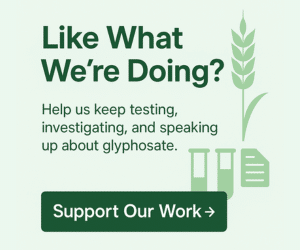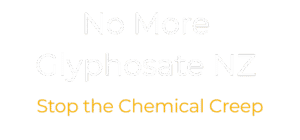New Zealand’s organic industry just hit a new milestone.
The latest market report shows the sector is now worth $1.18 billion—up from $723 million in 2020. That’s a 37% leap in just four years. Organic exports are thriving, domestic demand is surging, and food service sales are now finally being counted too. On the surface, it looks like we’re heading in the right direction.
But dig a little deeper, and you’ll find a problem that’s not so organic: New Zealand’s policies aren’t keeping up.
We’re Growing Organic Food—on a Non-Organic System
Despite the booming figures, organic farming still represents less than 1% of New Zealand’s total farmland. There’s no national strategy to grow that number, no clear funding support for farmers wanting to make the switch, and no organic trade equivalency deals in place to streamline our export potential.
The National Organic Standard, passed into law over two years ago, has still not been implemented. Certification remains expensive, patchy, and complex—especially for small-scale producers. And while we’re proudly reporting a billion-dollar organic market, the government is simultaneously considering raising the allowable glyphosate limits on some of our most common food crops.
How does that add up?
The Glyphosate Disconnect
Raising Maximum Residue Limits (MRLs) for glyphosate may serve global trade interests—but it directly threatens the integrity of our growing organic and GE-free sectors. Raising glyphosate limits risks undermining New Zealand’s export reputation, especially in markets where consumers and buyers expect strict residue controls.
Even as we celebrate new benchmarks, Glyphosate is still permitted for pre-harvest use on grain crops under current New Zealand regulations, and is still used in council parks, school grounds, and public walkways. If we’re serious about growing a sustainable, chemical-free food system, these practices need urgent reconsideration.
Regenerative Greenwash?
There’s also a creeping issue with the term “regenerative agriculture”—now used by both true organic pioneers and conventional farms still reliant on synthetic fertilisers and herbicides. In some cases, glyphosate is being used to kill cover crops in so-called regenerative systems. That’s not regeneration—that’s rebranding.
Organic farming, by definition, avoids synthetic inputs like glyphosate. But when terms like “sustainable” and “regenerative” are used without clear standards, the lines blur—and the public is left in the dark.
The Missed Opportunities
Other countries have subsidised transitions to organic. Others have passed strong organic equivalency agreements to ease export red tape. Others have taken a clear stance on glyphosate, reducing or phasing it out in favour of safer alternatives. Why haven’t we?
New Zealand has the branding, the market momentum, and the consumer trust. What it lacks is a cohesive plan.
Time to Shift Policy, Not Just Paddocks
If we want to keep the momentum going—both economically and ecologically—it’s time for New Zealand to:
- Finish implementing the National Organic Standard and make certification easier, not harder.
- Fund transition programs for farmers who want to move away from synthetic sprays.
- Secure organic equivalency deals with our biggest export partners.
- Reject MRL increases that risk contaminating both crops and credibility.
- Protect the definition of regenerative agriculture so it doesn’t become another marketing loophole.
Where Do We Go From Here?
New Zealand could be a global leader in clean food, GE-free exports, and organic farming. But not if we keep making chemical concessions behind the scenes. Let’s not pretend we can have it both ways.
Organic growth should be more than just a number in a report—it should be a reflection of real, measurable change.
Resources & References
Before we can demand better policy, we have to understand the forces shaping the conversation—from government decisions to industry tactics, from export challenges to on-the-ground consequences. These resources offer a deeper look at the issues discussed above:
2025 Organic Market Report
Latest data showing New Zealand’s organic industry topping NZ$1.18 b, driven by export, retail, and foodservice gains—but still constrained by unfinished national standards and trade barriers
MPI Proposal to Raise Glyphosate MRLs
This official consultation document outlines proposed increases to glyphosate residue limits on food crops, prompting concerns about trade safety, transparency, and public health.
What Glyphosate Does to Soil Health
An article from our own archives, where we explore glyphosate’s persistence in soil, highlighting how residues and AMPA accumulate, harm crucial microbial networks, and even reach into produce via soil uptake
Why Organic Certification Matters
A look at what certification really entails, and why clarity, consistency, and accessibility are crucial for the future of organic farming in New Zealand.
These aren’t just side notes—they’re the foundation for action. Because the more we understand, the harder it becomes to look away.
Be Part of the Shift:
Help protect the future of organic food in New Zealand. Support our campaign to keep glyphosate out of our food system—and demand government policy that actually supports the organic sector.
Disclaimer:
This article is provided for informational and advocacy purposes only. It reflects the views of the author(s) based on publicly available data, government consultations, and sector reports as of 2025. It does not constitute legal, health, or professional advice.
Image Source & Attribution
A big thank you to the creators at Unsplash for making their images freely available for projects like ours. Kenny Eliason created the image featured on this page. You can explore more of their work here: https://unsplash.com/@heyquilia.




